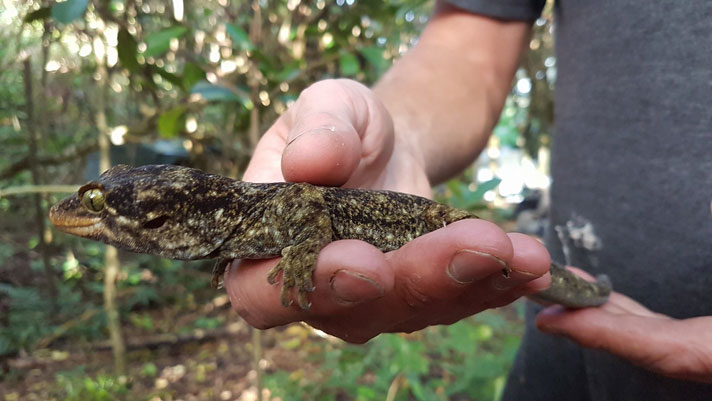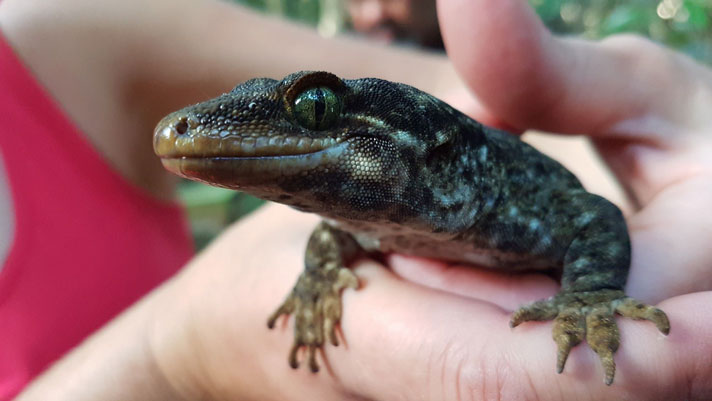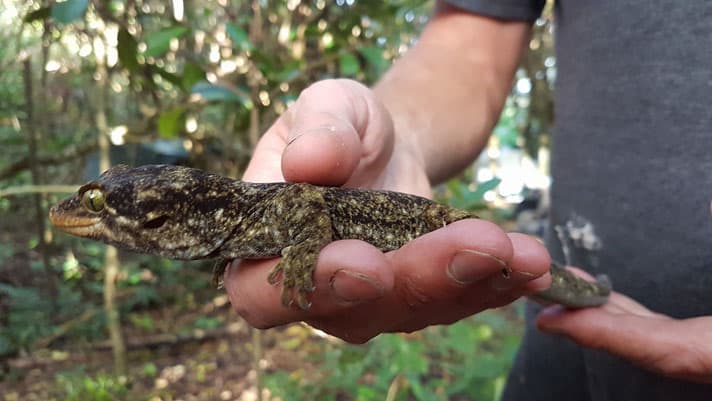The Dvaucel's geckos were devastated by introduced mammals such as rats, cats and ferrets.
A lizard that once roamed on an island in the New Zealand island chain has been reintroduced by Project Island Song, a wildlife sanctuary on the islands of Ipipiri, in the eastern Bay of Islands.

Richard Robbins/Project Island Song
The Duvaucel's geckos were devastated by introduced mammals such as rats, cats and ferrets.
Fifty Duvaucel’s geckos (Hoplodactylus duvaucelii), 34 of which are female, were released February 5 in the hopes that they will form the basis of a self sustaining population of the lizards.
The geckos were decimated by introduced pest mammals, including mice, rats, cats, ferrets, and pigs, among others.
“The geckos have probably not been present on Ipipiri for over 100 years due to pests and previous land use, as much of the islands were farmed for a period,” Richard Robbins, Project Island Song manager told ReptilesMagazine.com. “The geckos are being monitored to determine if the population will establish.”

Richard Robbins/Project Island Song
Thirty four female and 16 male Duvaucel’s geckos were released on islands of Ipipiri in New Zealand.
The introduced Duvaucel’s geckos were collected from Mauimua/Lady Alice Island in the Hen and Chicken Islands, where there are large populations of the reptiles.
Robbins told ReptilesMagazine.com that Project Island Song is not running a captive breeding program for the reptiles, and because many of the released females are gravid, they are hoping that the offspring will contribute to the genetic diversity of the founder population.
The Duvaucel’s gecko is New Zealand’s largest lizard, growing up to 30 cm in length. They are an arboreal species that feeds on insects, nectar and fruit. It is also a long lived reptile, with the oldest known wild gecko being aged to 36 years.



